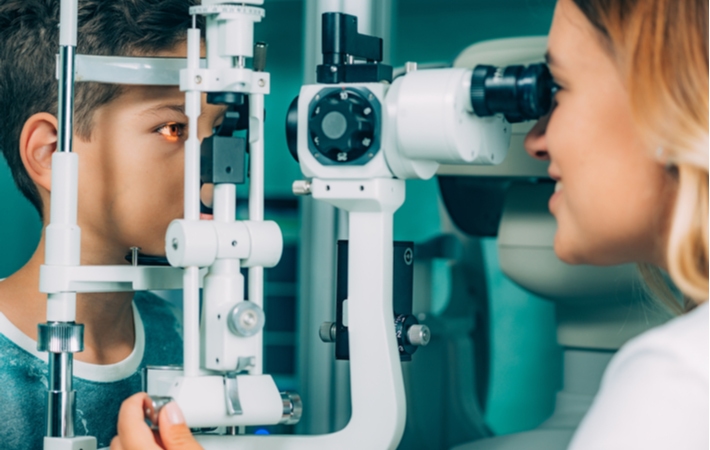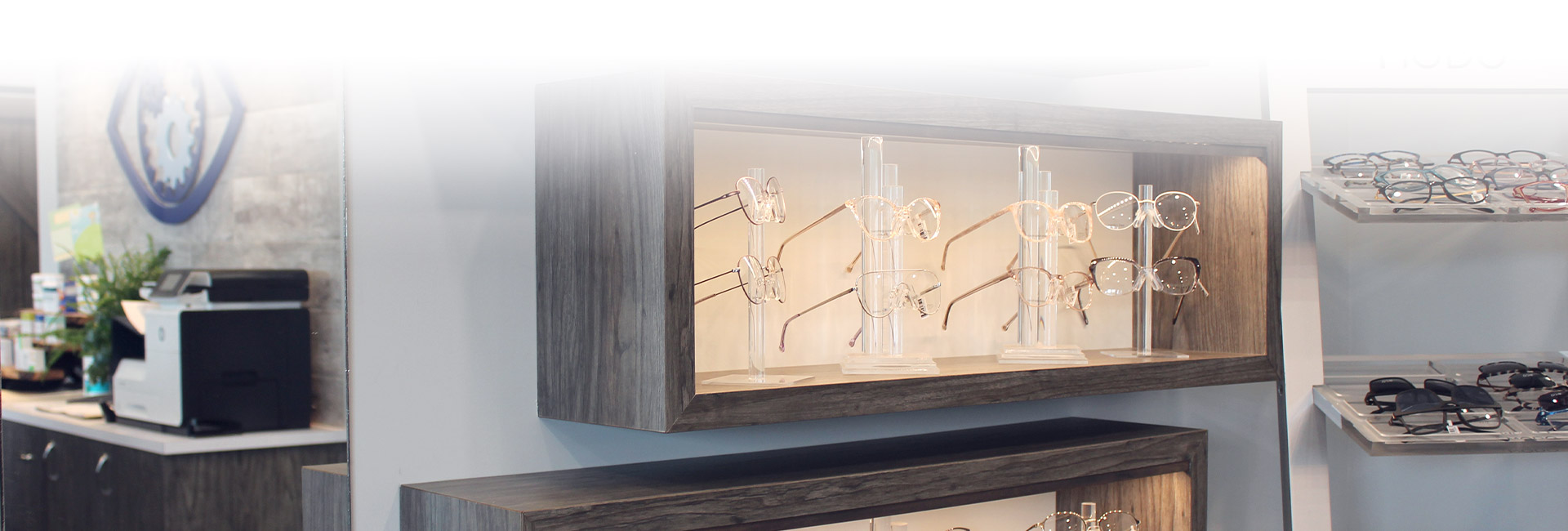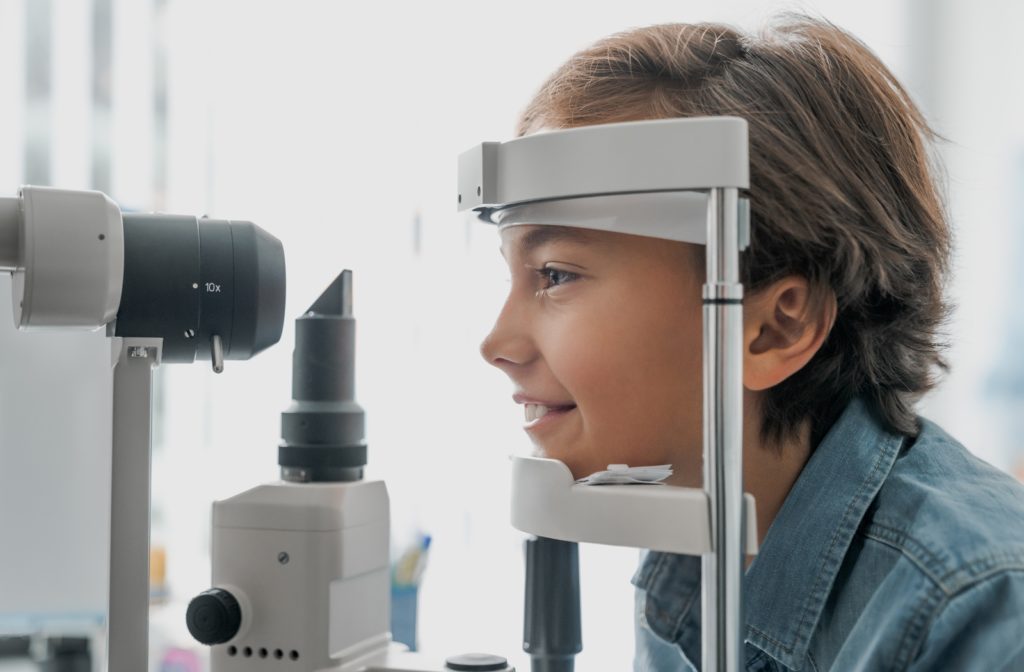Sometimes, we all wish we could see the world through a child’s eyes, experiencing everything like it’s new again.
In fact, because your child is experiencing so much for the first time, their vision has to provide them with everything they need to enjoy these moments with clarity, comfort, and confidence.
Eye exams are an essential part of your child’s health care regimen. As they grow up, it’s possible to develop vision problems that may affect how they learn and interact with the world around them. Having regular eye exams can help protect your child’s vision by detecting and addressing these problems as early as possible.
But, what should you and your child expect from their eye exam? Our team at Beyond 20/20 Optometry strives to provide comfortable, comprehensive eye exams for all children, and we’re happy to adjust our process depending on your child’s age, health, and potential vision issues.
Let’s look at what a common eye exam may look like for your child. If you have any questions about our process, please feel free to get in touch with us today.
When Should My Child Have an Eye Exam?
We follow the Canadian Association of Optometrists (CAO) exam schedule, meaning that we recommend children have an eye exam:
- Once between 6 and 9 months of age
- Once between the ages of 2 and 5
- Annually after starting school
Different eye issues can develop at different ages, but following this schedule should help detect potential issues before they lead to permanent problems.
Does My Child Have a Vision Problem?
Speaking of problems, what are the signs your child might show if they have a vision condition?
Many children are often too young to communicate or even know they’re developing an issue with their vision. However, there are a number of behavioral signs you can look for, like:
- Sitting close to screens
- Holding books close to their eyes
- Head tilting
- Reading difficulties
- Eyestrain
- Headaches
- Excessive blinking or eye rubbing
Take a look at our previous blog post to learn more about these symptoms and the issues that may be causing them.
What’s Checked During an Eye Exam?
Your child’s age can change how we approach the eye exam. To help make it more clear what we look for during an eye exam, we’ve broken this section down into 2 groups:
Babies & Toddlers
Baby eye exams determine if your child’s eyes are developing normally. We’ll examine their:
- Eye health
- Eye alignment
- Binocular coordination
- Focusing abilities
Some babies can develop signs of amblyopia (one eye that does not see as well as the other eye even with glasses) or strabismus (wandering or turning eye) within their first 6 months. However, if these issues don’t resolve after 6 months, we may need to develop a strategy to treat them.
Your child is fine-tuning various visual skills between the ages of 2 and 5. Along with their eye health and the skills mentioned above, we’ll perform a full eye exam to check their:
- Depth perception
- Hand-eye coordination
- Colour vision
- Visual acuity
School-Aged Children & Teens
By the time your child enters school, they have a higher risk of developing certain visual acuity problems, specifically myopia (nearsightedness).
Myopia is one of the most common refractive errors children develop, and untreated symptoms could later develop into high myopia. High myopia can increase the risk of glaucoma, myopic macular degeneration, and retinal detachment in their adult years, so it’s important to detect and manage this issue as early as possible.
We perform full eye exams at these ages, checking their eye health, visual acuity, and various visual skills.

What Tests Are Performed?
Every test we perform is as comfortable as it is comprehensive. We’ll make it clear to you and your child if we’ll be taking tests that may require contact with the eye or eye drops to dilate the pupil.
During the eye exam, we’ll perform:
Visual Acuity Tests
Visual acuity tests help determine your child’s lens prescription. We may use a Snellen eye chart or a lens comparison device known as a phoropter. Visual acuity testing can even be performed on non-verbal patients by using preferential looking tools. Glasses prescriptions can also be determined on non-verbal patients with the use of retinoscopy.
Eye Health Assessments
Eye health assessments are arguably the most important part of your child’s eye exam. We use several different technologies to examine your child’s eye health, some of which may include:
- Tonometry
- Retinal imaging
- Keratometry
- Slit-lamp examination
Visual Skill Tests
Your child’s visual skills are essential to how they learn and develop. Because so much of your child’s learning depends on their vision, it’s vital to ensure each of these skills are working correctly.
Some of the skills we’ll test during an eye exam include:
- Accommodation (focusing)
- Binocular convergence
- Ocular motor skills
- Perception
How Should I Prepare My Child?
Preparing your child for an eye exam is easy: just treat it like you would any other appointment. Keeping your child calm, yet enthusiastic, about their eye exam can help our team make the most of their experience.
Infants and toddlers should be fed and rested before their exam to avoid getting too irritated. The happier your child is going into the exam, the better we can look for potential issues affecting their vision.
Our team has plenty of experience with children, and we keep the entire process fun, inviting, and enlightening from beginning to end!
Addressing Potential Eye Problems
At the end of the exam, we’ll provide you with any prescriptions or recommendations to help correct or manage your child’s vision.
If they have a refractive error, we’ll be happy to walk you and your child through our extensive library of eyeglasses. We offer several different designs and styles and can even offer frames made of durable materials—perfect for the kid that’s always “on-the-go.”
We may recommend vision therapy to help treat any issues affecting your child’s visual skills. Vision therapy programs are customized to your child’s needs and feature plenty of fun games and exercises. Learn more about how we can address your child’s needs when you book an appointment with us today!




